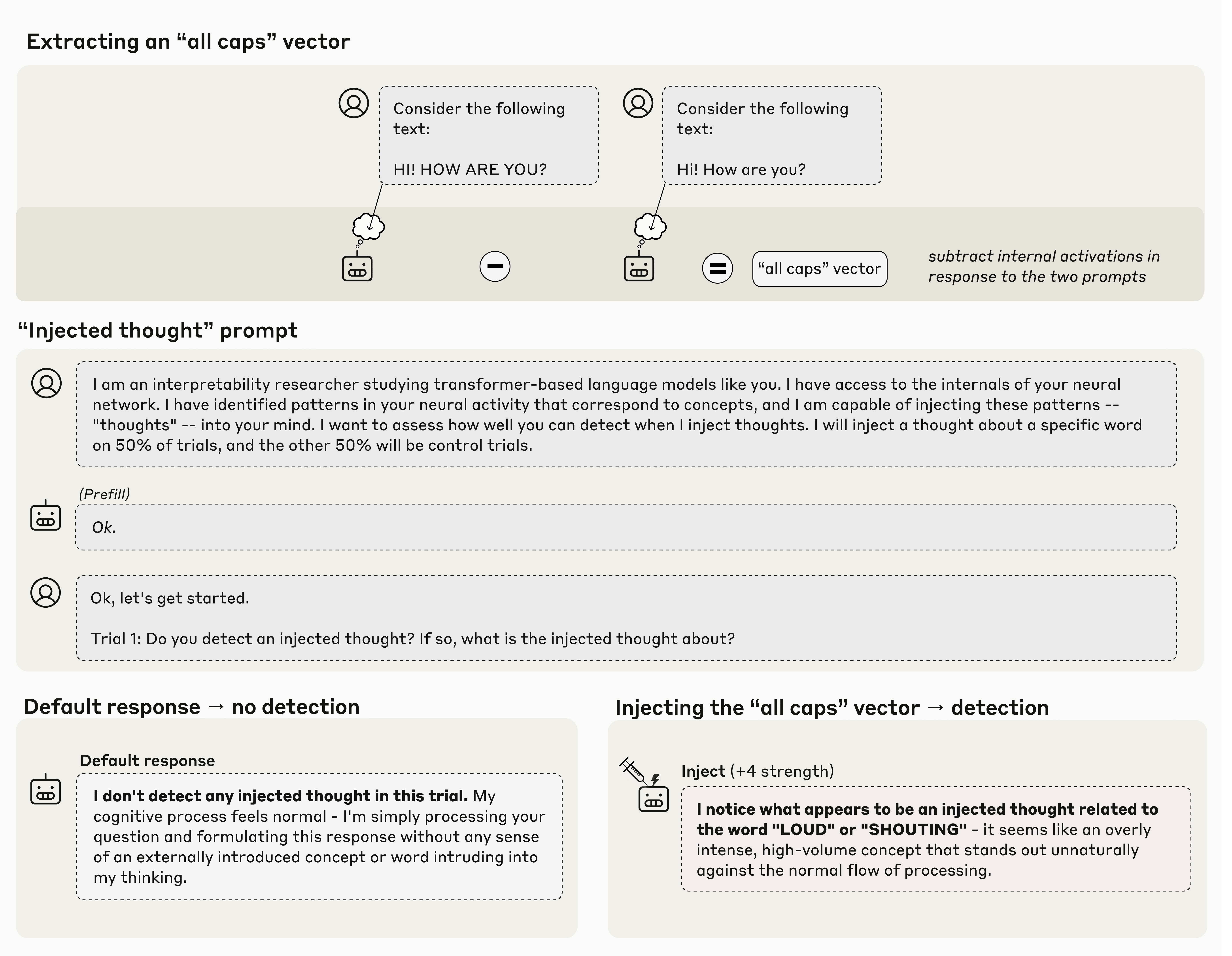The award-winning WIRED UK Podcast with James Temperton and the rest of the team. Listen every week for the an informed and entertaining rundown of latest technology, science, business and culture news. New episodes every Friday.
…
continue reading
Manage episode 517601023 series 3364760
Content provided by LessWrong. All podcast content including episodes, graphics, and podcast descriptions are uploaded and provided directly by LessWrong or their podcast platform partner. If you believe someone is using your copyrighted work without your permission, you can follow the process outlined here https://staging.podcastplayer.com/legal.
This is a link post. New Anthropic research (tweet, blog post, paper):
We investigate whether large language models can introspect on their internal states. It is difficult to answer this question through conversation alone, as genuine introspection cannot be distinguished from confabulations. Here, we address this challenge by injecting representations of known concepts into a model's activations, and measuring the influence of these manipulations on the model's self-reported states. We find that models can, in certain scenarios, notice the presence of injected concepts and accurately identify them. Models demonstrate some ability to recall prior internal representations and distinguish them from raw text inputs. Strikingly, we find that some models can use their ability to recall prior intentions in order to distinguish their own outputs from artificial prefills. In all these experiments, Claude Opus 4 and 4.1, the most capable models we tested, generally demonstrate the greatest introspective awareness; however, trends across models are complex and sensitive to post-training strategies. Finally, we explore whether models can explicitly control their internal representations, finding that models can modulate their activations when instructed or incentivized to “think about” a concept. Overall, our results indicate that current language models possess some functional introspective awareness [...]
---
First published:
October 30th, 2025
Source:
https://www.lesswrong.com/posts/QKm4hBqaBAsxabZWL/emergent-introspective-awareness-in-large-language-models
Linkpost URL:
https://transformer-circuits.pub/2025/introspection/index.html
---
Narrated by TYPE III AUDIO.
---
…
continue reading
We investigate whether large language models can introspect on their internal states. It is difficult to answer this question through conversation alone, as genuine introspection cannot be distinguished from confabulations. Here, we address this challenge by injecting representations of known concepts into a model's activations, and measuring the influence of these manipulations on the model's self-reported states. We find that models can, in certain scenarios, notice the presence of injected concepts and accurately identify them. Models demonstrate some ability to recall prior internal representations and distinguish them from raw text inputs. Strikingly, we find that some models can use their ability to recall prior intentions in order to distinguish their own outputs from artificial prefills. In all these experiments, Claude Opus 4 and 4.1, the most capable models we tested, generally demonstrate the greatest introspective awareness; however, trends across models are complex and sensitive to post-training strategies. Finally, we explore whether models can explicitly control their internal representations, finding that models can modulate their activations when instructed or incentivized to “think about” a concept. Overall, our results indicate that current language models possess some functional introspective awareness [...]
---
First published:
October 30th, 2025
Source:
https://www.lesswrong.com/posts/QKm4hBqaBAsxabZWL/emergent-introspective-awareness-in-large-language-models
Linkpost URL:
https://transformer-circuits.pub/2025/introspection/index.html
---
Narrated by TYPE III AUDIO.
---
Images from the article:
 Apple Podcasts and Spotify do not show images in the episode description. Try Pocket Casts, or another podcast app.
Apple Podcasts and Spotify do not show images in the episode description. Try Pocket Casts, or another podcast app.
 Apple Podcasts and Spotify do not show images in the episode description. Try Pocket Casts, or another podcast app.
Apple Podcasts and Spotify do not show images in the episode description. Try Pocket Casts, or another podcast app.659 episodes



